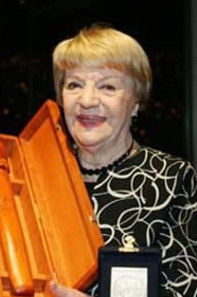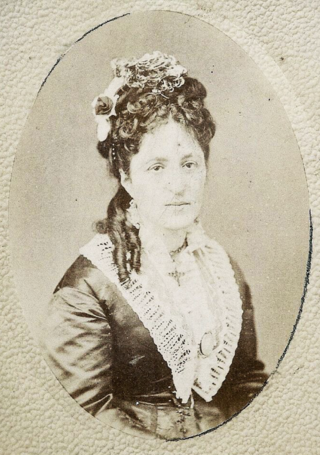Related Research Articles

Pedro Gutiérrez de Valdivia or Valdiva was a Spanish conquistador and the first royal governor of Chile. After serving with the Spanish army in Italy and Flanders, he was sent to South America in 1534, where he served as lieutenant under Francisco Pizarro in Peru, acting as his second in command.

The Antofagasta Region is one of Chile's sixteen first-order administrative divisions. The second-largest region of Chile in area, it comprises three provinces, Antofagasta, El Loa and Tocopilla. It is bordered to the north by Tarapacá, by Atacama to the south, and to the east by Bolivia and Argentina. The region's capital is the port city of Antofagasta; another one of its important cities is Calama. The region's main economic activity is copper mining in its giant inland porphyry copper systems.

Atlas Fútbol Club is a Mexican professional football club based in Guadalajara, Jalisco that currently plays in Liga MX. It plays home matches at the Estadio Jalisco.

Club Universidad de Chile is a professional football club based in Santiago, Chile, that plays in the Primera División.

The General Captaincy of Chile, Governorate of Chile, or Kingdom of Chile, was a territory of the Spanish Empire from 1541 to 1818 that was, initially, part of the Viceroyalty of Peru. It comprised most of modern-day Chile and southern parts of Argentina in the Patagonia region. Its capital was Santiago de Chile. In 1810 it declared itself independent, with the Spanish reconquering the territory in 1814, but in 1818 it gained independence as the Republic of Chile. It had a number of Spanish governors over its long history and several kings.

Corporación Club Deportivo Arturo Fernández Vial is a football club in Chile, from the Concepción area, in the Bio-Bio Region. The team was founded on June 3, 1903, and they currently play in the second level of Chilean football, the Primera B.
The Arts Faculty, University of Chile, is an academic discipline within at the University of Chile, which is located in the capital city of Santiago. Within the Arts Faculty the following departments are represented: visual arts, dance, music, sound, theatre, and arts theory; which occupy three buildings on campus.
The National Prize of Art of Chile, was created on November 9, 1942. It was awarded yearly since 1944 and alternated the mention among Painting or Sculpture, Music and Theatre. In 1992, it was replaced by the National Prizes of Plastic Arts, Musical Arts and Arts of the Representation and Audiovisual, respectively.

Club Deportivo Ñublense is a professional football team based in Chillán, Ñuble Region, Chile. The club was formed in 1916 under the name of Liceo Fútbol Club. They compete in Chile's Primera División league.

The Radical Party was a Chilean political party. It was formed in 1863 in Copiapó by a split in the Liberal Party. Not coincidentally, it was formed shortly after the organization of the Grand Lodge of Chile, and has maintained a close relationship with Chilean Freemasonry throughout its life. As such, it represented the anticlericalist position in Chilean politics, and was instrumental in producing the "theological reforms" in Chilean law in the early 1880s. These laws removed the cemeteries from the control of the Roman Catholic Church, established a civil registry of births and death in place of the previous recordkeeping of the church, and established a civil law of matrimony, which removed the determination of validity of marriages from the church. Prior to these laws, it was impossible for non-Catholics to contract marriage in Chile, and meant that any children they produced were illegitimate. Non-Catholics had also been barred from burial in Catholic cemeteries, which were virtually the only cemeteries in the country; instead, non-Catholics were buried in the beaches, and even on the Santa Lucia Hill in Santiago, which, in the 19th century, functioned as Santiago's dump.

The Allende family is a Chilean family of Spanish descent. They became well known during the 19th century and are based in Santiago. They have played a very significant role in Chilean politics.
Osvaldo Alexis González Sepúlveda is a Chilean footballer. He currently plays for Chilean club Universidad de Concepción.

The Conquest of Chile is a period in Chilean historiography that starts with the arrival of Pedro de Valdivia to Chile in 1541 and ends with the death of Martín García Óñez de Loyola in the Battle of Curalaba in 1598, and the destruction of the Seven Cities in 1598–1604 in the Araucanía region.
The Grand Lodge of Chile is a regular Masonic body in Chile founded on May 24, 1862. The earthquake of 1906 destroyed the original headquarters and the archives of the Grand Lodge, which determined its definitive transfer to Santiago, settling in the Club de la República.

The St. Ambrose Cathedral Also Linares Cathedral Is a cathedral church of Catholic worship, home of the Diocese of Linares in the Maule Region in Chile. It was built between 1935 and 1937.

Bélgica Castro Sierra was a Chilean stage, film, and television actress.

Luis Alfonso Alarcón Mansilla, popularly known as Lucho Alarcón, was a Chilean actor, theatre director, and activist with a distinguished film, television, and stage career.

Maipina Copacabana de la Barra was a Chilean writer of travel books and advocate of women's education. After her husband's early death, she travelled across parts of Europe and South America with her daughter Eva. Having settled permanently in Buenos Aires, she published a memoir of her travels entitled Mis impresiones y mis vicisitudes (1878). The book discussed the state of women's education in the societies she had visited and was the first travel journal to be published by a Chilean woman.

The Osorno Steer is the meat of young male cattle from the vicinity of Osorno, including parts of Los Ríos Region, in southern Chile. The origins of the Osorno Steer as a recognisable product of prestige in the Chilean meat market can be traced to the early 20th century when Osorno attained status as one of Chile's two main cattle farming areas. Later in the 20th century Osorno rose to become the unrivaled cattle farming area of Chile.

The Governorate of Terra Australis or Governorate of Pedro Sancho de la Hoz was a Spanish Governorate of the Crown of Castile created in 1539 which was granted to Pedro Sánchez de la Hoz and consisted in all the territories to the south of the Strait of Magellan until the South Pole, and, to the east and west, the borders were the ones specified in the treaties of Tordesillas and Zaragoza, respectively.
References
- ↑ "Pedro de la Barra García". Universidad de Chile. Retrieved June 27, 2020.